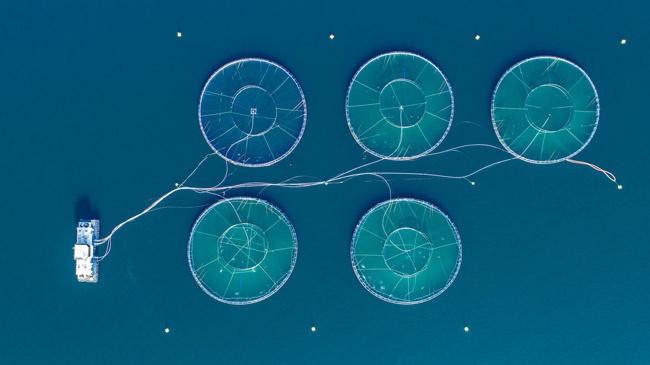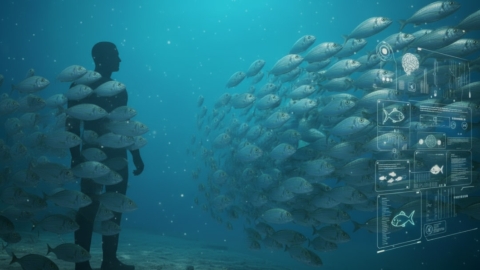
Deep-sea aquaculture is emerging as a strategic solution to secure a sustainable supply of aquatic products and meet the growing global demand of protein. This is the conclusion of a study published in Frontiers in Nutrition by researchers Ye Ma and Ying Zhang from the Ocean University of China, which positions this production model as a central pillar of global food security.
Deep-sea aquaculture refers to the farming of aquatic organisms in offshore marine areas located far from the coast and at depths not influenced by nearshore human activities, where environmental conditions are more stable and space resources are abundant.
The research, based on evolutionary game models, explores how cooperation between governments, aquaculture enterprises and services organisations can drive the development of deep-sea farming, overcoming the high costs and risks that continue to hinder its expansion.
According to the authors, government intervention plays a crucial role in the early stages by providing incentives that encourage private sector participation. However, they stress that such support should gradually decline as the market matures, to avoid creating structural dependence on public subsidies.
The study also highlights the importance of fair mechanisms for distribution of benefits and risks, which are essential to sustaining trust and cooperation among stakeholders. In this respect, specific insurance systems for aquaculture, combined with advances in technology and innovation, are identified as key tools to reduce costs and enhance competitiveness.
Another significant finding concerns the role of service organisations, whose collaboration with aquaculture enterprises can accelerate the uptake of deep-sea practices. Yet, the researchers caution that if the benefits are shared unequally, such cooperation could be undermined.
Among the concrete measures proposed, the authors call for awareness campaigns, information-sharing platforms, innovative licensing and monitoring systems, and greater support for research and technological development, backed by strong frameworks for intellectual property protection.
Looking ahead, with the global population projected to exceed 9 billion by 2050, deep-sea aquaculture is presented as a cornerstone for boosting the availability of high-quality proteins while advancing environmental sustainability.
The study, funded by the National Natural Science Foundation of China and the Strategic Research Programme of Scientific and Technological Innovation in Qingdao, not only provides a practical guide for governments, enterprises and organisations but also marks a milestone in building the so-called “blue granaries” – a strategic vision to turn the oceans into safe and sustainable food reserves for future generations.
Reference:
Ma Y and Zhang Y (2025). Ensuring a sustainable supply of aquatic products in the future: research on the promotion and application of deep-sea aquaculture. Frontiers in Nutrition.


